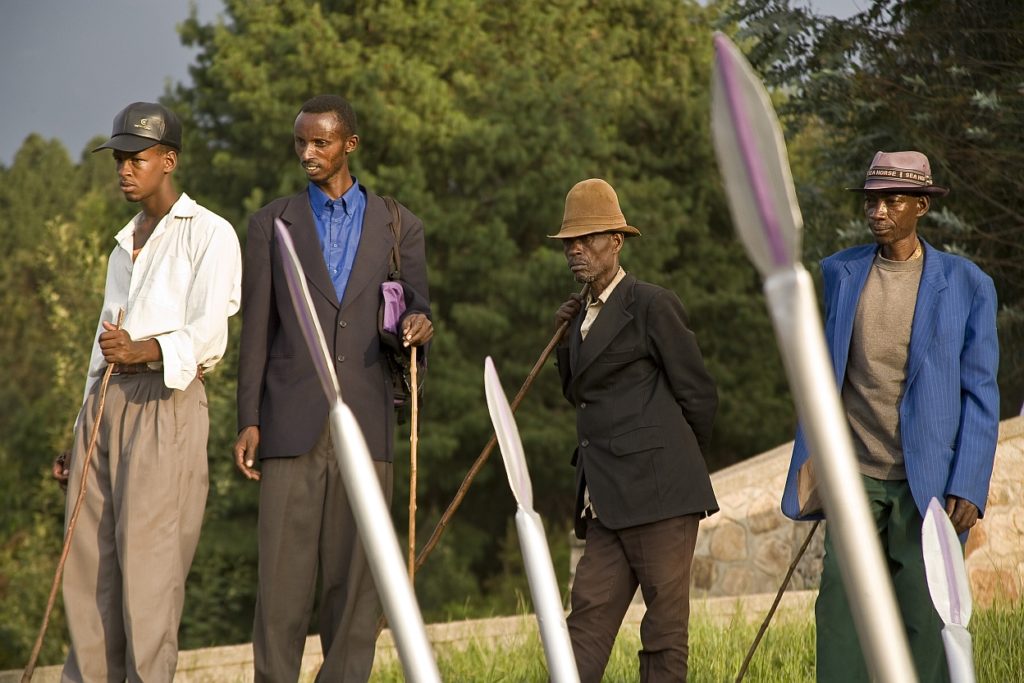
Genocide survivors to set up trust fund.
by Edwin Musoni, The New Times.
Genocide survivors are planning to establish an international trust fund that will draw finances from all over the world to help the vulnerable survivors of the 1994 Genocide against the Tutsi.
The planners of the project said the fund will operate along the same lines as that run by International Criminal Court in The Hague.
Albert Gasake, the legal advocacy project coordinator for Survivors Fund (Surf), said if the fund is established, all countries and international organisations will be sensitised to contribute toward it.
“To date, the funds allocated to survivors from UN Agencies total $250,000 (about Rwf162 million) annually. This contrasts sharply with the $30m (about Rwf2b) the same body spends on a single suspect at the International Criminal Tribunal for Rwanda (ICTR). With the fund, we intend to pressure UN to allocate more funds for the survivors,” said Gasake, who is part of the team that is working on the proposal to set up the fund.
Similar funds have previously been set up, including the ICC Trust Fund for Victims, which has a budget of about $70 million (about Rwf4.5 billion), the UN Trust Fund to end violence against women, UN Voluntary Trust Fund for victims of human trafficking and the UN-World Bank International Trust Fund for Reconstruction of Iraq.
According to Gasake, such a fund needs to be established with a mandate to advance the interest of Genocide survivors on the international arena.
“Genocide survivors have unique needs and distinctive vulnerabilities as a result of the losses they suffered during the ethnic cleansing, the violence they experienced and witnessed, theft of their properties and land, the destruction of their families and communities, and the physical and psychological impairments caused by the Genocide which continue to threaten their welfare on a daily basis. Such a fund would deal with all these problems,” he said.
Gasake said the fund would only be receiving voluntary contributions, which is why it was not named the ‘reparations fund.’
The representative of Ibuka, a Genocide survivors’ umbrella, in Europe, Eric Rutayisire, advised that if all survivors agree on the principle of establishing the fund, there is need to move away from relying fully on the government and instead, the Rwandan government would come is as a partner like any other country or organisation to contribute to the fund.
In a separate interview with The New Times, the president of Ibuka, Dr Jean Pierre Dusingizemungu, said if the fund is established, getting money would not be a problem.
“To give you a rough picture, there is about Rwf500 million that was won as reparations and that money has been deposited in various bank accounts. We could sink that money in the new fund.
“There are also victims of the Genocide who were killed and left a lot of money on their bank accounts, we could as well put this money in the fund. There are countries that had a direct or indirect role in what happened and now they wish to contribute, but they don’t want to be seen as if they are implicated in the Genocide. We believe they would as well contribute some money,” said Dusingizemungu, without elaborating which countries.
For general cause
He, however, noted that the money would not be spent on an individual per se, but on general issues.
Generally, survivors are optimistic that the fund, once established, may offer a lease of life to those that remain vulnerable, almost 20 years after the Genocide.
Jean Damascene Nsanzumuhire, a survivor living in Kicukiro, said the fund would also play an advocacy role on the plight of survivors on the internation scene.
“We request the international community to embrace this fund and make significant contributions to it. It’s one way we would know that the world values our existence and honours our relatives who perished in the Genocide,” said Nsanzumuhire.
The government has, since the Genocide in 1994, been providing support to survivors although the beneficiaries say the support has not solved all issues, the reason for mooting the idea for international fund.
In 1998, government established the Fund for Support to Genocide Survivors (FARG) in which at least 5 per cent of the national cake is sunk to cater for the survivors.
By last year, the Fund had spent more than Rwf130 billion on survivors’ welfare, with 75 per cent spent on education.
A 2012 study indicated that 98 per cent of Genocide survivors are satisfied with the way they have been facilitated on education.
According to the study, the two per cent who were discontented are those who had dropped out of school for various reasons.
It is estimated that currently, there about 300,000 Genocide survivors in the country.
